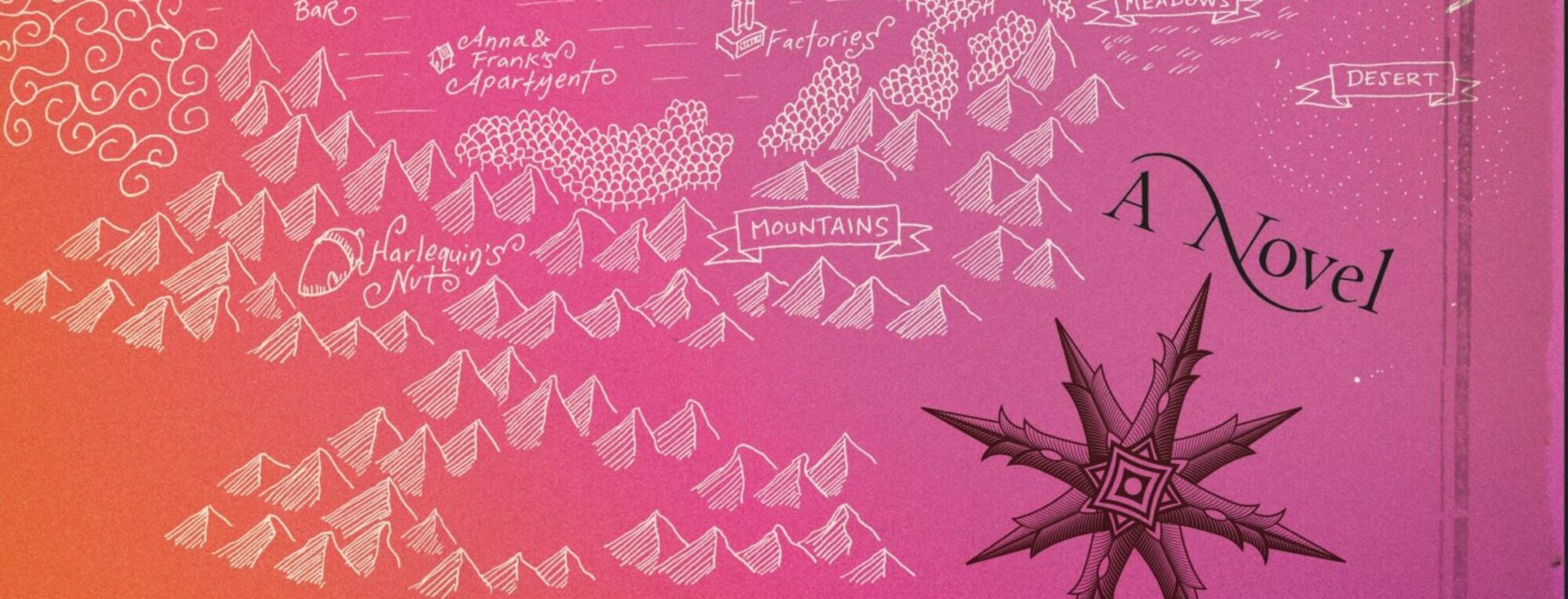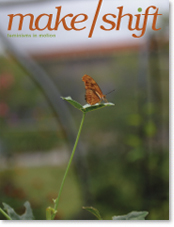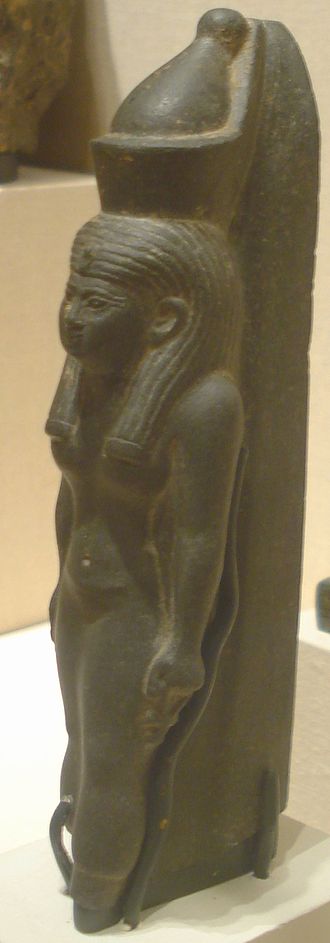I wanted to not be moved. I wanted to have no feelings. But there, it had happened: Whole Foods Brooklyn excited me. “Take the orange juice taste test,” sang a man in the fruit and vegetables section, proffering tiny free samples of special Whole Foods orange juice. “What are the different categories?” I asked, imagining satsuma, Jaffa, blood, bitter Sevilla – worlds of “heirloom” orange juices Whole Foods had squeezed and gotten ready for me to sample and compare, one by one. But the choices were only organic and nonorganic. I liked the nonorganic better, which bothered me. Still, it was free OJ, and handed me by the most cheery little man.
Not far from the cups of juice was a large glass globe full of reddish-yellow grapes free to all comers, like the guy who used to kneel with his mouth open in the basement of the Mineshaft. A woman grabbed one grape and pricked it between her teeth, then another. I didn’t actually like that kind of grape, but the giant glass globe offering them to everyone strangely touched me. (You mean I can have as many as I want? Right now? Without paying for them?) All sorts of people stepped up to the glass globe and reached inside for the promise of sweetness like a pill. Because I didn’t take a grape, I now needed some other sort of free food immediately; I proceeded to the southwest side of the store, the side with the bakery, where free samples of chickpea crostini, pear chutney with crackers, tiny delicious chocolate-and-cream cakes had offered on my first visit.
No such luck. My initial visit, soon after the store’s opening late in 2013, had been full of gratis cheese, soups, even two sampling stations for free Sixpoint beer! I went to both of the latter, one of them twice; I managed to get a nice buzz on and have my appetite slaked without spending a cent. Of course, all this largess had made me want to spend, and soon.
In the gem-colored juicing section, with beautiful plastic bottles and dixie-cup samples colored all the colors of the rainbow, there were free samples of a purple blend called Immunity Blast with beet, carrot, ginger, turmeric, cayenne, and spirulina. It tasted deep and spicy yet refreshing, like a beer. I don’t even believe in juicing. Yet I sucked it down. On another visit, Karen and I had downed cup after cup of mango juice and tangy Green Maca Blend samples, in an orgy of something-for-nothing fressing. Immediately after that, we’d spent about $75.
I found myself going crazy with desire in the meat section, with its seven kinds of “humane” fresh sausages laid out for purchase, garlic and herb chicken, sweet Italian pork, “Buffalo” and chorizo, all gleaming. There was a rack of lamb with its beautiful little bones looking like legs thrust in the air, a large, thick, grassfed steak far more succulent-looking than the kinds Karen and I always get, bone-in short ribs! I wanted everything, walking around the city-block-long store in a kind of hypnotic glaze: Cute dishtowels from Etsy, with grapes on them! Men’s cologne from Herban Cowboy! Macarons! It was clear that a master designer had been at work here, in fact an entire team of master food stylists, fruit-layout artists, coffee-bar sculptors, label-designers, and aisle-molders, because I have never wanted to buy and consume things as much as I did at Whole Foods Gowanus.
(In fact, the store employs four full-time visual artists, food stylists, and marketers, as well as several freelance firms and art directors who work at the regional level.)
Whole Foods has described its 56,000 square foot Gowanus store as a national flagship, and coming upon it from surreally quiet Third Avenue one afternoon last week, it was easy to see why. The company has constructed this market to rise on the banks of the fetid Gowanus canal like a palace of pro-environmentalism, a garden of morally righteous and sensually fulfilling delights. Next to the green-tinged canal, named a Superfund site in 2010 by the EPA and found by scientists to contain PCBs, cholera, dysentery, and even gonorrhea, Whole Foods has built beautiful paths with wooden benches, umbrella-covered tables, and gorgeous plantings of black-eyed susans, red-and-yellow lilies, and marigolds. There is a canister with Whole Foods- supplied dog-poop bags, although I wouldn’t let my dog eat anything onto which the Gowanus had overflowed in a storm. (The waters of the Gowanus have also been found to be radioactive.) On the Whole Foods side of the bank, there was also a large black barbecue smoker, looking like something out of a restored Colonial village. Even on a 90-degree day, that smoker was going, and the big, 18th-century-looking oven and its smell were an immediately effective visual and olfactory advertisement. Though I hadn’t on other visits, when I’d entered from the Third Street side, now I badly wanted to eat animal flesh cooked in that big artisanal thing.
Wouldn’t you know it, most of the meats served in the store’s rooftop restaurant and prepared foods section are made in that outdoor publicity symbol. The verdict: the actual meat in “Carolina gold BBQ” pork ribs was good, though its sauce was cloyingly sweet. Something surprising and welcome happened when I tried to suck the marrow from a small pig bone: the bone was soft and delicious enough that I actually ate it along with the candylike marrow, which nutritionists say is perfectly safe to do as long as there are no sharp pieces and nothing hard enough to choke on. A smoked chicken salad sandwich on buttered, griddled bread was exactly what I wanted to eat on a rooftop bar in the summer with a beer (though Karen, who ordered it, found it much too mayonnaise-y and buttery). On another visit, pulled turkey meat and Kansas City chicken legs from the prepared foods table had a lovely, smoky flavor, but were dry.
Vegetables prepared in the smoker, however, were hideous. So-called smoked ratatouille from the prepared foods table (green and yellow squash and eggplant, mostly) both looked and tasted muddled, even muddy, and the only reason to confront more of its squishy texture was obedience to Michael Pollan. The entire hot side of the prepared foods section, in fact, looked unappetizing and overheated, with meats, rice dishes and vegetables all appearing entirely in colors of brown and yellow, along with an occasional dark green. (It looked like a lot of the food I used to eat growing up in the 70s in Brooklyn.)
At the side of the steam table, on framed photos along the walls, on inventively painted posters throughout the store, was one message: how much Whole Foods had done for Brooklyn and the world by creating this store.
Next time: Part Two: Whole Foods’ environmental claims, “Brooklynitude,” and the politics of a beautiful rooftop bar and community space.
Whole Foods Gowanus, 214 3rd Street, Brooklyn. The grocery and its restrooms are wheelchair-accessible.
This piece appeared in slightly different form in Gay City News, August 6, 2015.













